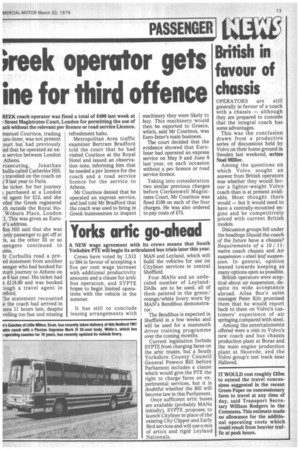British in favour of chassis
Page 15

If you've noticed an error in this article please click here to report it so we can fix it.
OPERATORS are still generally in favour of a coach with a chassis — although they are prepared to concede that the integral coach has some advantages.
This was the conclusion drawn from a productive series of discussions held by Volvo on their home ground in Sweden last weekend, writes Noel Miller.
Among the questions on which Volvo sought an answer from British operators was whether they would favour a lighter-weight Volvo coach than is at present available. Most thought there would — but it would need to have a centrally-mounted engine and be competitively priced with current British models.
Discussion groups fell under the headings Should the coach of the future have a chassis? Requirements of a 10 / 11metre coach chassis and Air suspension v steel leaf suspension. In general, opinion leaned towards keeping as many options open as possible.
British operators were sceptical about air suspension, despite its wide acceptance abroad. Ailsa Bus's sales manager Peter Kitt promised them that he would report back to them on Volvo's customers' experience of air springing compared with steel.
Among the entertainments offered were a visit to Volvo's new coach and bus chassis production plant at Boras and the main engine production plant at Skoevde, and the Volvo group's test track near Hallered.
























































































